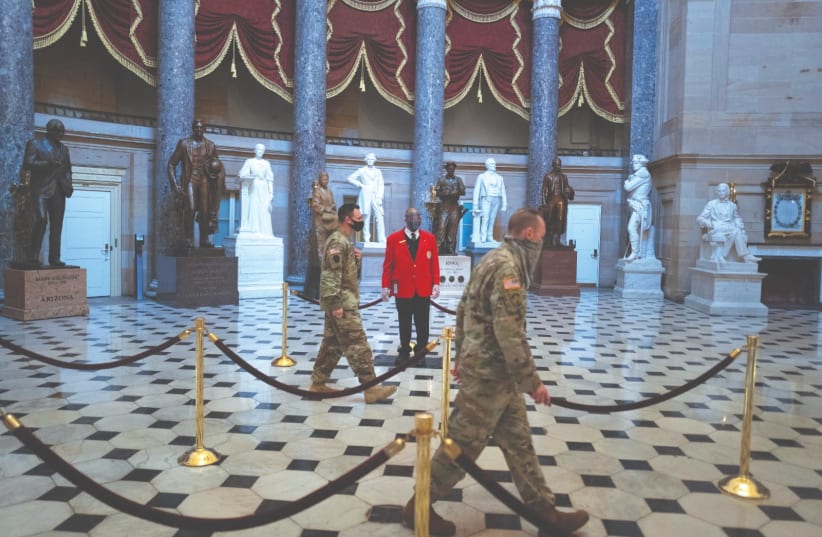Since election day in November, many have voiced various concerns for the state of our democracy. As clergy we have seen one necessary component denied to millions of Americans and it is foundational to any healthy society: the need to mourn losses.
If elections are the mechanisms for ensuring that the government is periodically realigned with the will of the people, then there will always be those who feel elated and those who feel dejected after those contests.
Loss is hard but worse is denying someone the necessary process to mourn that loss.
Some members of the media, Congress and former president Donald Trump told us since even before November 4th that the election was being stolen, it was fraudulent, and that there were pathways to reverse the results. Even after many dozens of court cases closed off those pathways, influential voices still maintained that Trump had won the election.
After thousands stormed the Capitol on January 6, preventing Congress from timely performing its duty to accept the election results and leading to the deaths of five and injuries to many others, Congresswoman Marjorie Taylor Greene still insisted that “President Trump will remain in office.”
And even after it was clear that the stoking of pain from loss led to an explosion at the Capitol, there were and are still those who don’t understand what it means to care for mourners, a sacred responsibility with which they play fast and loose.
Preventing people from mourning loss is a form of emotional manipulation and leadership malpractice.
As clergy, we know well the importance of the grieving process. And, indeed, it is a process. We help people transition from hope, to acceptance, to sadness, to gratitude, to integrating loss into who they are, and to moving forward. Loss is not something any of us can avoid. It is constitutional to being human. In fact, in many ways it is what makes us most human.
We also know how vulnerable people are in their grief, how they will often do anything to avoid facing the sadness and devastation of loss, how susceptible they are to alternatives like falsehoods embedded in elaborate conspiracy theories.
People are easily convinced that instead of going through loss they are being robbed. Sadness can easily turn to anger, resentment and worse.
We have sacred responsibilities in those moments to help people move through and not deny what is truly happening. As US Sen. Mitt Romney said not so long ago, the greatest respect you can have for another human being is to “tell them the truth.” And we would add, hold them close as you do.
As rabbis we are with the ill at their bedside, we comfort people after the death of loved ones, counsel them through divorces, listen caringly after job losses. We know how precarious the journey can be as people’s very identities begin to transform from a person with a whole heart to someone with a broken one.
The role of helping people to face, name, let go, and move on from losses is not the job of clergy alone. It is a role we all can play for people in our lives. But it is especially important in its symbolic power when practiced by leaders. Whole societies can be brought through a mourning process and emerge on the other side as stronger and more resilient versions of themselves.
Alternatively, and most devastatingly, societies can be manipulated at their most vulnerable to nurse and deepen their grievances over loss, convinced that things can be reversed when they cannot.
A leader who does this does not feel the sacred responsibility of holding another human being’s hopes, dreams, and losses in their hands.
Now we are seeing the titanic consequences when people are prevented from mourning by their leaders, by the people they trust. We urge all leaders to search their conscience and speak truth clearly to the American people.
There are many paths to seek leadership objectives, but one must never trample on the sacred ground of the human heart.
After the plagues, Pharaoh’s advisers turn to him and say, “Are you not yet aware that Egypt is lost?”
Real leaders care about the hearts they hold as they walk people through the inevitable human experience of loss. In this way we can help one another to experience the comforting assurance offered in Psalm 30, “In the evening we lie down in tears; and with the dawn comes joy.”
Rabbi Aaron Brusso is secretary and Rabbi Stewart Vogel is president of the Rabbinical Assembly, the international association of Conservative Movement rabbis. Since its founding in 1901, the Rabbinical Assembly has been the creative force shaping the ideology, programs, and practices of the Conservative Jewish movement, and is committed to building and strengthening the totality of Jewish life.
